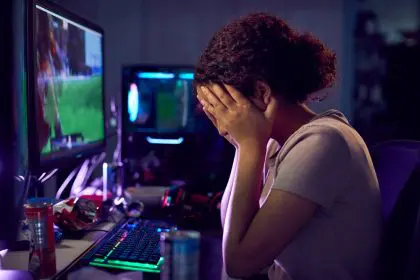You wake up at 5 AM for meditation, drink celery juice, track your steps, monitor your sleep, practice gratitude, take supplements, do breathwork, and journal about your intentions. By the time you’ve finished your morning wellness routine, you’re already exhausted. Sound familiar? You might be experiencing wellness fatigue – the newest form of burnout that’s spreading through health-conscious communities everywhere.
What started as a genuine desire to feel better has morphed into an overwhelming pressure to optimize every aspect of your existence. The wellness industry has transformed self-care from a simple concept into a complex, time-consuming, and expensive lifestyle that can leave you feeling more anxious and depleted than when you started.
When self-care becomes another job
Wellness fatigue happens when the pursuit of health becomes so demanding that it creates the very stress it’s supposed to eliminate. People find themselves spending hours each day on wellness activities, tracking multiple metrics, following complicated protocols, and constantly evaluating their progress against impossible standards.
The modern wellness landscape offers endless options and conflicting advice, creating decision fatigue before you even begin. Should you try intermittent fasting or intuitive eating? Hot yoga or cold plunges? Mindfulness meditation or transcendental meditation? The sheer volume of choices can make wellness feel like a full-time research project rather than a path to feeling better.
Social media amplifies this pressure by showcasing perfectly curated wellness routines that look effortless but require significant time, money, and energy to maintain. The comparison trap is real, and it’s particularly insidious in wellness spaces where people are supposedly focused on self-acceptance and inner peace.
The productivity trap infiltrates wellness
Wellness culture has adopted the same productivity mindset that burns people out at work. There’s pressure to hack your sleep, optimize your nutrition, maximize your workout efficiency, and measure your progress with apps and devices. This turns rest and self-care into another arena for achievement and competition.
The language around wellness often mirrors corporate culture – you’re supposed to invest in yourself, maximize your potential, optimize your performance, and achieve your best life. This framing transforms activities that should be restorative into additional sources of pressure and potential failure.
Many people report feeling guilty when they skip their wellness routines, as if taking a day off from meditation or eating a non-organic meal represents a personal failure. This guilt defeats the entire purpose of wellness practices, which should reduce stress rather than create it.
Information overload creates analysis paralysis
The wellness industry generates an overwhelming amount of often contradictory information. Every week brings new trends, debunked old advice, and expert opinions that conflict with what you learned last month. This constant stream of information can leave you second-guessing every choice and feeling like you’re never doing enough.
People with wellness fatigue often describe feeling paralyzed by options and confused about what actually works. They might try multiple approaches simultaneously, constantly switch between different systems, or abandon efforts entirely because nothing feels sustainable or effective.
The pressure to stay informed about the latest wellness trends creates its own form of stress. Following wellness influencers, reading health blogs, and staying current with new research can become a time-consuming habit that adds to rather than reduces daily stress levels.
The financial burden of optimal health
Wellness can be expensive, and the financial pressure to afford all the recommended supplements, treatments, classes, and organic foods creates another layer of stress. People often feel inadequate if they can’t afford the latest wellness trends or high-end versions of basic health practices.
The wellness industry markets many products and services as essential for optimal health, creating fear that you’re missing out on important benefits if you don’t invest in them. This scarcity mindset can drive people to overspend on wellness products while neglecting basic financial wellness.
Class and privilege issues are often ignored in wellness spaces, where expensive treatments and time-intensive practices are presented as accessible to everyone. This creates shame and exclusion for people who can’t afford or don’t have time for elaborate wellness routines.
Finding balance in the wellness chaos
The antidote to wellness fatigue isn’t abandoning self-care entirely – it’s returning to simpler, more sustainable approaches that actually improve your life rather than complicating it. Start by identifying which wellness practices genuinely make you feel better versus which ones you do because you think you should.
Focus on basics that don’t require apps, expensive equipment, or complicated protocols. Getting enough sleep, moving your body in ways you enjoy, eating foods that make you feel good, and spending time with people you care about might be more beneficial than any trendy wellness routine.
Remember that wellness should enhance your life, not consume it. If your self-care routine is causing stress, taking up too much time, or making you feel worse about yourself, it’s okay to simplify or step back entirely. Sometimes the most radical act of self-care is giving yourself permission to do less.












